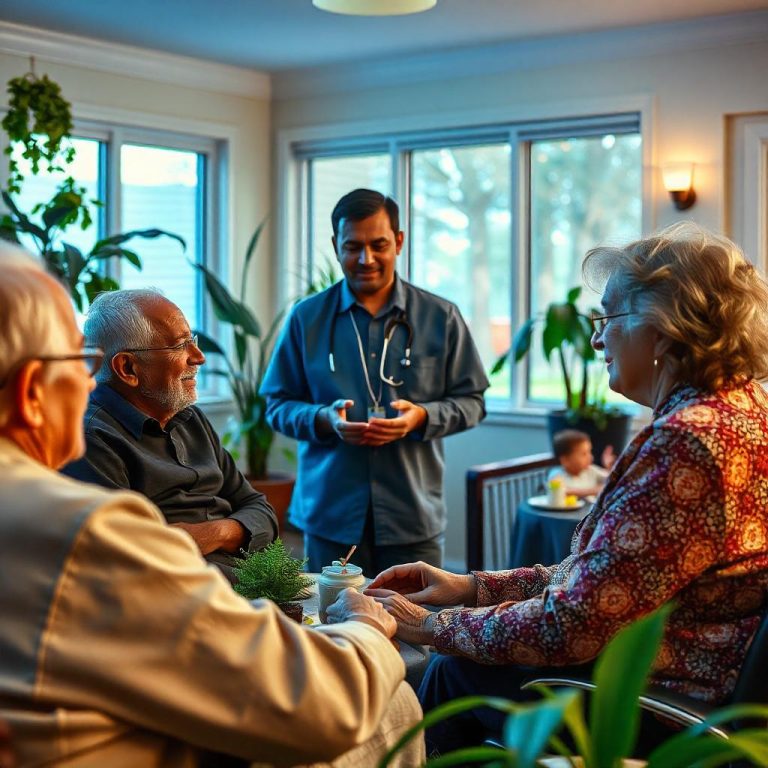Dementia support groups are a vital resource for individuals and families affected by dementia, offering a safe space for sharing experiences, gaining knowledge, and finding emotional comfort. These groups connect people navigating similar challenges, providing guidance and camaraderie to help them cope with the demands of dementia care.
Benefits of Joining a Dementia Support Group
- Emotional Support
- Sharing struggles and triumphs with others who understand reduces feelings of isolation and stress.
- Participants gain strength and encouragement from one another’s experiences.
- Practical Advice
- Members exchange caregiving tips, coping strategies, and resources to manage daily challenges.
- Learn about local services, care facilities, and financial assistance programs.
- Educational Resources
- Many groups invite healthcare professionals to discuss dementia care topics, such as behavior management, legal planning, or medication.
- Stay informed about advancements in dementia treatment and care options.
- Community Connection
- Support groups foster a sense of belonging, offering a network of people who truly understand the caregiving journey.
Types of Dementia Support Groups
- Caregiver-Focused Groups
- Tailored for family members and caregivers, addressing their unique challenges and emotions.
- Patient-Centered Groups
- Supportive environments for individuals in the early stages of dementia, promoting social interaction and engagement.
- Online Support Communities
- Virtual groups provide flexibility and access to support from the comfort of home.
- Specialized Groups
- Some groups cater to specific demographics, such as young caregivers, spouses, or caregivers of individuals with specific types of dementia like Alzheimer’s or Lewy body dementia.
Where to Find Dementia Support Groups Nearby
- Local Hospitals and Clinics
- Many healthcare providers host or recommend support groups for dementia patients and caregivers.
- Community Centers
- Check senior centers, libraries, or community organizations for regular group meetings.
- Nonprofit Organizations
- Groups like the Alzheimer’s Association often facilitate in-person and virtual support meetings.
- Faith-Based Groups
- Churches, synagogues, and other religious organizations frequently offer caregiving support groups with spiritual guidance.
- Online Directories
- Use resources like the Alzheimer’s Association’s “Community Resource Finder” to locate nearby groups.
- Word of Mouth
- Ask friends, family, or healthcare professionals for recommendations.
Tips for Choosing the Right Support Group
- Determine Your Needs
- Decide if you prefer an in-person or online group, and consider the focus (caregiver support, patient engagement, etc.).
- Check Accessibility
- Ensure meeting locations are convenient, and meeting times fit your schedule.
- Review Group Structure
- Some groups are professionally led, while others are peer-driven. Choose the format that feels right for you.
- Attend a Session
- Most groups welcome newcomers to attend a trial meeting to see if it’s a good fit.
Additional Resources
- Alzheimer’s Association Helpline (800-272-3900): Connects you with support services and nearby groups.
- Eldercare Locator (1-800-677-1116): A government service to find local aging-related resources.
- Memory Cafés: Informal gatherings for individuals with dementia and their caregivers to socialize and share experiences.






